Six out of ten Hungarians (58 percent) agree that Hungary's prime minister should block the start of accession negotiations with Ukraine in the European Council, according to a survey by the Hungarian Social Research Institute, which also shows that two thirds of Hungarians (67 percent) would prefer to conclude a partnership agreement with the war-torn country, instead of admitting Ukraine to the European Union.
As is known, the possibility of enlarging the European Union with Ukraine is to be discussed this week at the European Council in Brussels. In this context, the research institute has conducted a survey to find out what people think about Ukraine's possible accession, and the Hungarian prime minister's position.
Five hundred people aged over 18 were interviewed by telephone. The results show that the majority of Hungarians, three out of five (58%), are in favor of PM Viktor Orban's decision to block the start of accession talks with Ukraine,
with more than a third (35 percent) of left-wing voters - who disagree with Hungary's prime minister on almost every issue - holding the same opinion.
The survey results show that an even higher proportion of Hungarians, around two thirds (67 percent), do not consider Ukraine's accession to the European Union to be a topical issue, and would instead agree to a partnership agreement for the time being. Two-thirds of all surveyed social groups (e.g. gender, age and education groups), including 66 percent of pro-government sympathizers and 64 percent of left-wing opposition supporters, share this view.
The results show an interesting pattern in terms of geographical locations: those living in the capital Budapest appear to be more in favor of a partnership agreement with Ukraine, as nearly three quarters (73 percent) of them share this view.
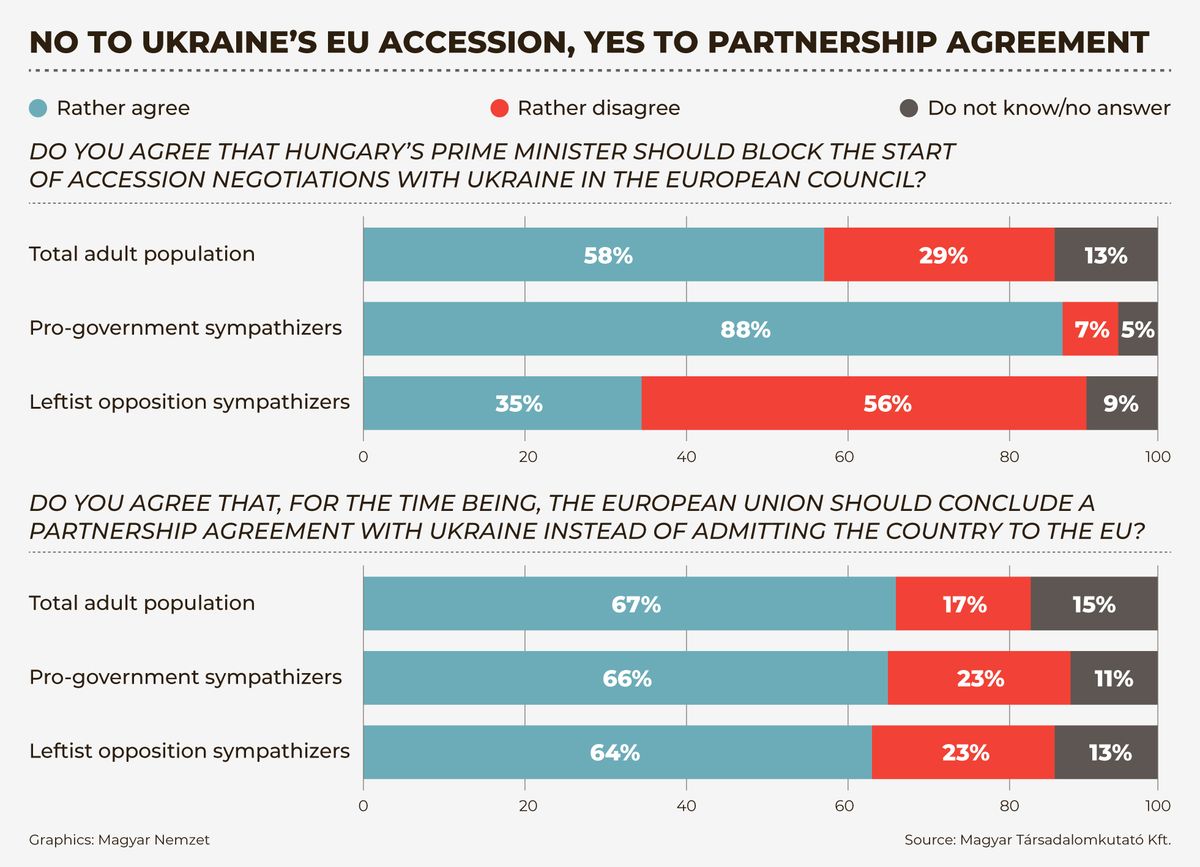







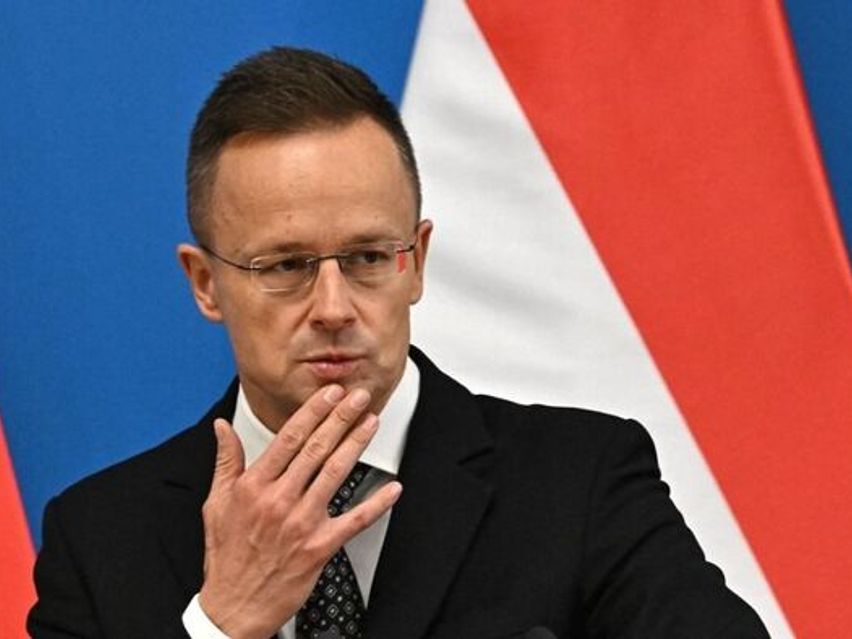




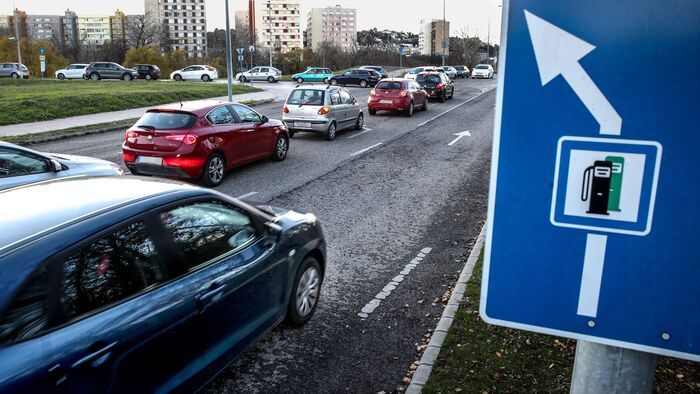


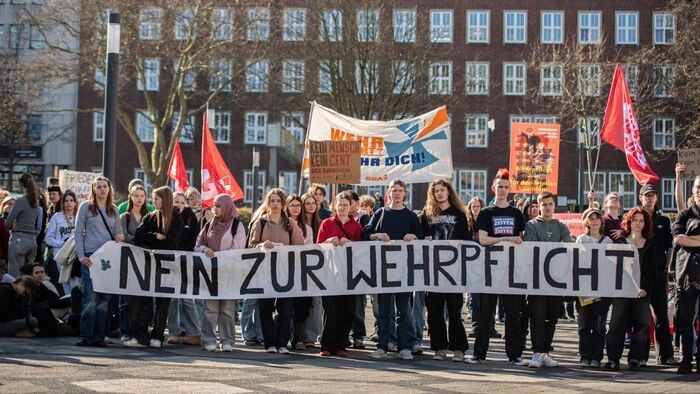
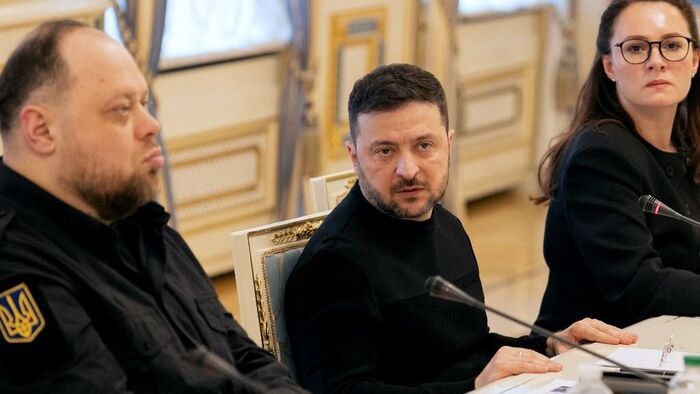
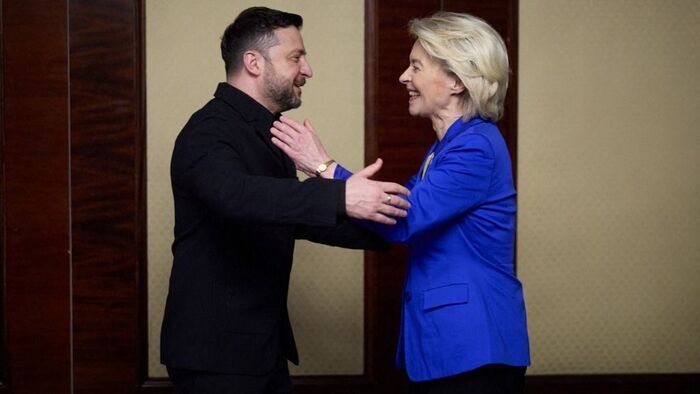
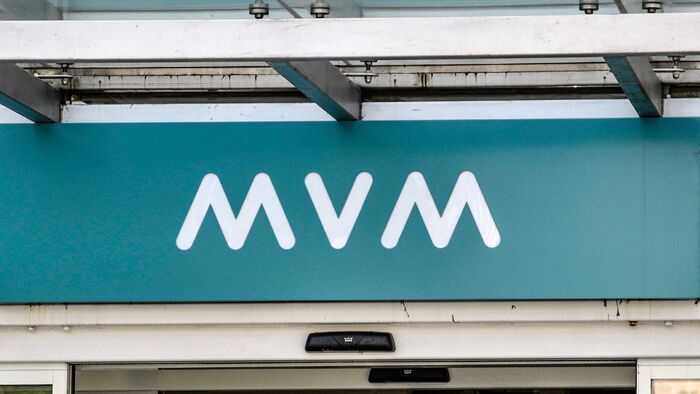



Szóljon hozzá!
Jelenleg csak a hozzászólások egy kis részét látja. Hozzászóláshoz és a további kommentek megtekintéséhez lépjen be, vagy regisztráljon!